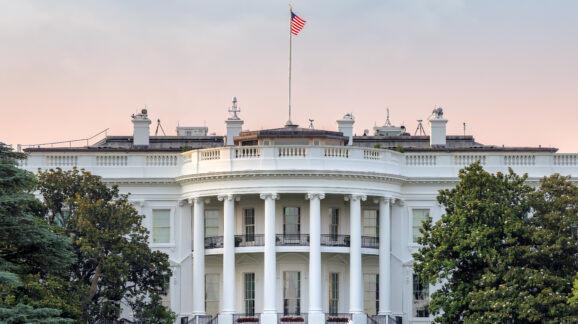Biden’s veto of joint employer rule CRA a blow to small businesses

Photo Credit: Getty
President Biden’s veto Friday of a Congressional Review Act (CRA) bill rolling back the National Labor Relations Board’s (NLRB) “joint employer” rulemaking is a blow to small businesses nationwide. Allowing the NLRB rule to stand will cause corporations to either pull back on offering franchise opportunities to entrepreneurs or to demand more control over what were previously independent businesses. The veto is mainly a gift to Biden’s union allies since it will tilt the NLRB’s rules for organizing in their favor.
The CRA bill had sought to roll back a rulemaking by the NLRB, a quasi-independent federal agency that oversees union elections, that had drastically expanded a legal doctrine called joint employer. This was when one business could be held legally liable for workplace violations at another business. Traditionally, this required one business to have direct control over the second, such as a subsidiary company.
The NLRB rule would expand this to include “indirect control,” a term of art with no clear meaning. Theoretically, any company that merely does business with another could be said to have “indirect control” over the latter. The rulemaking would also extend liability to cases of reserved control, instances where even the NLRB concedes that no control was in fact exercised but that it hypothetically could have happened.
This is a major problem for franchisees, most of which are not deep-pocketed corporations but rather small, independent businesses who merely rent out the corporate brand. A bipartisan Congress rightfully sought to undo this power grab through the CRA.
The rulemaking is intended to aid unions engaged in pressure campaigns to organize corporations. Under the new expanded rule, it would be possible for unions to organize a corporation at once. Previously the unions would have had to organize each franchisee individually.
The Biden administration openly concedes benefiting unions was the reason behind the veto, stating that it was done “to strengthen workers’ right to organize and bargain” and accusing Republicans of “hampering the NLRB’s efforts to promote the practice and procedure of collective bargaining.” That is, incidentally, a misreading of the National Labor Relations Act, the law that created the NLRB.
Those franchisor corporations will not want to be on the hook for potential violations. They’ll either limit how they franchise and/or assert more control over their franchisees. Either way the entrepreneurs that ran them will lose out.
A court blocked the rule from taking effect in March, saying that the NLRB had exceeded its authority. The board is expected to appeal the ruling.